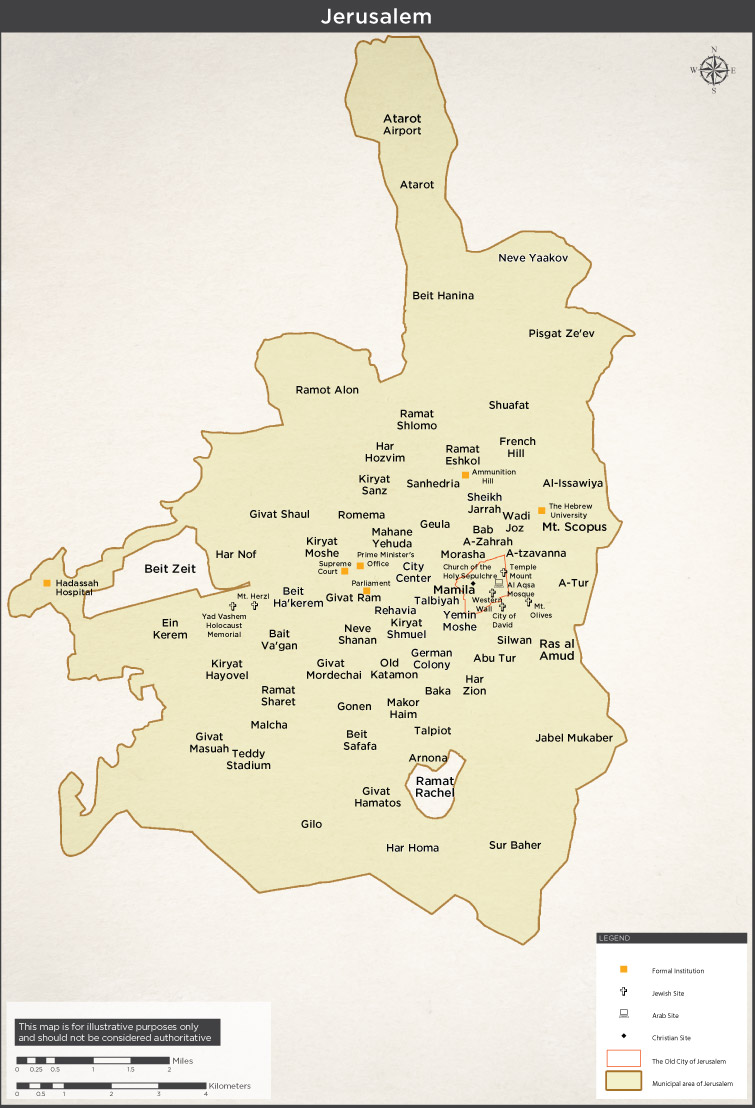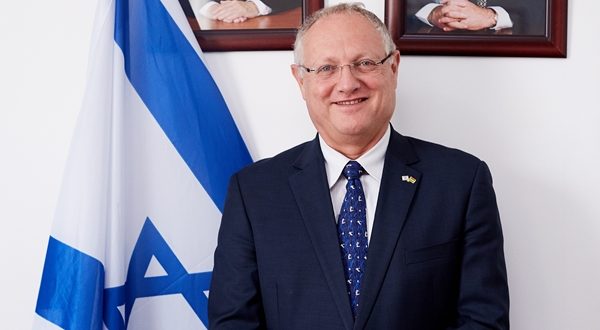“Then Solomon began to build the temple of the Lord in Jerusalem on Mount Moriah” 2 Chronicles, 3:1, NKJV
The Sankofa symbol expresses the instruction to turn backwards to history and tradition and take important knowledge and values, thus a better future will be built up. During this time of international discussion concerning Jerusalem, let us follow this principle and review once again the history of our beloved Jerusalem – the city that is compact together! (Psalms, 122:3, NKJV).

The long 3000 years of existence of Jerusalem is well documented. It is embedded in its soil, burnt in archaeological discoveries and most importantly, it is well-illustrated in the Holy Bible. King David began the process of sanctifying Jerusalem by transferring the Holy Ark into it. Therefore, Jerusalem became holy for King David’s descendants – the sons of Israel, and following that to Christians and Muslims. It was King Solomon who was instructed to build the house of God in Jerusalem.
As it says in 2 Chronicles, 3:1: “Then Solomon began to build the temple of the Lord in Jerusalem on Mount Moriah, where the Lord had appeared to his father David. It was on the threshing floor of Araunan[a] the Jebusite, the place provided by David”.
The holiness of Jerusalem and its significance as a religious center increased due to pilgrimages that were obeying “The words which Moses spoke unto all Israel” in the name of God (Deuteronomy, 1:1). The people of Israel were told to appear before the Lord at a place which He chooses three times a year.”…at the Feast of Unleavened Bread, at the Feast of Weeks, and at the Feast of Tabernacles” Deuteronomy, 16:16 NKJV.
During the Second Temple period (538BC – 70AD), the tradition of pilgrimage had become a common practice. That is why Jesus Christ was entering Jerusalem at that famous time. Jesus Christ went through the golden gate and was welcomed with palm branches on his way to the Temple. It was during spring time when the Feast of Unleavened Bread was celebrated, which is also known as the Jewish holiday of Passover. King Herod expanded that temple and made it the largest and most luxurious building in the East at that time.
Historically, the name Jerusalem has been preserved until 135 AD. The change came after the Bar-Kokhba revolt, in which the Jews were fighting for their independence and for their right to worship their God. Following that, the Romans changed the name of Jerusalem to Aelia Capitolina, and the name of the province Judea to Syria-Palestina.

It was done in order to erase any trace of Jewish identity of the city. Most of the Jews – the descendants of King David, were deported to exile, but kept on praying to go back to Jerusalem during the long diaspora.
The consistent use of some proverbs throughout generations by the sons of Israel all over the world reflects their deep bond to Jerusalem. A bond that was kept through the long diaspora for thousands of years. For example, at every Jewish wedding ceremony, the groom says: “If I forget you, O Jerusalem, let my right hand forget its skill!” Psalm 137:5, NKJV. This demonstrates the eternal love, loyalty and commitment of the people of Israel to Jerusalem, which shows up even at the most private and significant ceremony such as marriage. Another saying that follows an ancient ritual in the Jewish tradition is: “Next year in built Jerusalem”. It is said every year at the end of Passover’s dinner, after reading the Exodus story of the sons of Israel from Egypt through the work of the almighty God. It shows the strong wish of every Jew to reach Jerusalem, and if he has not yet managed to get there, he hopes and prays to be there in the next year.
Jewish heritage and identity were kept by many members of the Jewish communities around the world. Many of them continued to use the Hebrew language – the original language of the Old Testament, as the prayer and religious studies language.
Today, the Palestinians are trying to rewrite the history, so they can gain a political support around the world and by false representation to achieve their purpose – to destroy the existence of the state of Israel! Understanding that the historical right of the Jewish people to Jerusalem is well based in the Holy Bible, they are trying to claim that they are the descendants of the Jebusites and the Canaanites. The only problem with this claim is the complete absence of scientific evidence to substantiate this false argument.
Psalms, 122:1-3, NKJV, illustrates the excitement, love and respect of pilgrims attending Jerusalem: “I was glad when they said unto me, let us go into the house of the LORD. Our feet shall stand within thy gates, O Jerusalem. Jerusalem is built as a city that is compact together.” According to these verses, it is harmony, tolerance and mercy that build up Jerusalem. This attitude is well applied today by the Israeli democracy. Every individual can worship his religion and reach his holy sites. Israel is the only democracy in the region and the concept: “Freedom of religion” appears at the Israeli “Declaration of Independence” and well respected despite the challenges that are involved in implementing it.
It says: “For my brethren and companions’ sakes, I will now say, Peace be within thee. Because of the house of the LORD our God I will seek thy good.” Psalms, 122:8-9, NKJV. That peaceful tolerance spirit of integrity did not lead the house of the UN on December 21, 2017. 128 members of the UN General Assembly, including Ghana, voted against the United States’ recognition of Jerusalem as Israel’s capital, and its decision to move the USA embassy from Tel-Aviv to Jerusalem. That UN voting is fundamentally wrong and illegitimate, as it is violates the sovereignty of two of its democratic members. First, Israel’s right, as a sovereign country to choose its capital, and second, the USA’s right as a sovereign state to determine its foreign policy towards another state. No one has the right to interfere in that declaration of the USA. No one has the right to cancel it, not even 128 members of the UN!
The famous proverb associated with the Sankofa symbol says: “It is not wrong to go back for that which you have forgotten”. Looking back at the long history of Jerusalem and the founder of Holy Jerusalem: King David, the king of Israel, clarifies once again the unbroken linkage between the people of Israel to Jerusalem! Let us hope that Jerusalem will be well kept as a peaceful and unifying factor for all its lovers forever, as it says in Psalms: 122:6, NKJV: “Pray for the peace of Jerusalem: they shall prosper that love thee.”
–
By: H. E. Ami Melh
Ambassador of the State of Israel to Ghana
Dr. Yael Mehl, Public Diplomacy Coordinator, Embassy of the State of Israel to Ghana


